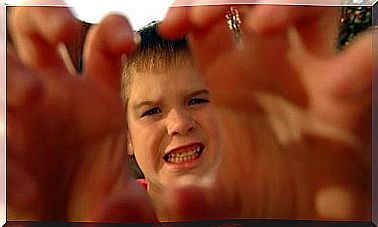The Influence Of Expectations On Children. Self-fulfilling Prophecy

We parents create since our children have very little expectations about their future. On many occasions these expectations can be a drag on children and can negatively affect them. It is called “self-fulfilling prophecy” or Pygmalion Effect to how those positive or negative expectations that are created in the family or in the school can affect children.
It may even happen that parents have not consciously created these expectations. Today’s parents want to educate our children in a responsible way. But many times we do not realize the value of our words. For example, if from a young age we see that our son is not very good at physical education, we can involuntarily influence not to foster expectations in this field. The child could have developed skills in this discipline or in others, but since childhood he has the “label” that he is not good at it.
Expectations are also formed at school. Teachers can create an image of each student that can influence their behavior. Teachers must give students confidence and responsibility before putting labels or limits on them.
Negative expectations
Parents sometimes inadvertently say words that can affect the future of our children. For example, we tend to tell them that they get bad grades because they are lazy or that they lose things because they have no head. They educated us in a different way, believing that with these phrases the children were motivated to improve themselves. But the truth is that all these comments are penetrating children little by little and mark them with labels and limits for the future.
It is about what is called “self-fulfilling prophecies” by which the child is lazy or clueless for everyone. The child in the end will not try hard not to be lazy or stop being clueless. We must be aware that with these labels we are marking children for the future. Their behavior is conditioned and will generate negative responses and frustration in the future.
Measure our words
The moment we parents realize that words can affect children, we can begin to change our attitude. Parents will have to start to measure our words and not transmit labels in our comments.
If we are constantly telling our son that he is intelligent but lazy and has no more interest than the console and games, surely in the future he will reaffirm that behavior. On the contrary, if our son knows that he is not so intelligent but he is a worker and we reinforce that behavior. Surely in the future the child will continue on that path and will make an effort in their studies.
Negative expectations can also affect teens a lot. At this stage they are in a vulnerable situation. Words can affect your development and your future. Children and adolescents form the concept of themselves with the evaluations they receive from others. Feedback from adults such as parents or teachers is very important to this process.
Motivate your children
Although feedback can negatively affect your children, you can also use it in a positive way. If you see that he is struggling, help him discover his skills and make an effort every day. Children have to feel that the environment trusts them. If you build self-confidence, performance will improve.
But do not forget that it is also important that we do not lie to them about their capabilities. If your child is not good at Physical Education, encourage him to improve himself but do not tell him that he can reach very high goals that he will not be able to do. For example, do not tell him that he is going to be a successful singer or that he is going to enter the NBA if he does not have the skills to do so. They have to know their limitations and the parents too. Children can be frustrated if they don’t succeed in the end. You have to value your achievements and help you overcome your failures.
The secret to successful motivation is that you believe in your child and accept it. If a parent motivates his child, the child will feel more and more capable of trying. If a parent accepts the limits of his child, the child will not feel frustration.
A task that parents have to set ourselves since they are little. We must motivate and support them from the beginning of early childhood education. This stage largely determines the emotional development of children. Do not hesitate and motivate your child from the first day of his life.









